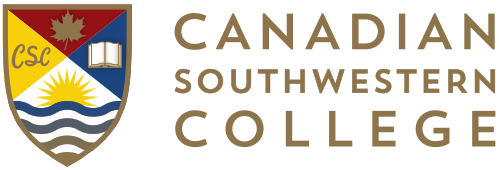Courses
Montessori Online Courses (Early Childhood)
Child Development and Observation
The program may elect to have adult learners receive the child development/psychology component from outside sources, such as local community colleges or universities, including child development’s theories of development, stages of development. Areas of development are examined in physical, cognitive, emotional and social abilities. Current child development theories and research will be examined. This course includes lectures and documented observations. The adult learner is introduced to reflective practices of observation and record keeping skills.
Montessori Philosophy
In this course, you will be introduced to Maria Montessori her life and work. You will familiarize with the Montessori philosophy and theory system, which include the historical perspective of Montessori. Montessori concepts that relate to the nature of the child, the role of the child, the role of the adult, and also the prepared environment and Montessori materials. After the adult leaner built a fundamental understanding of what Montessori Philosophy is, we will introduce the theory of application of these concepts to the children, the adult and the environment. And will seed a bigger picture of Peace education in human society.
Practical Life
We believe the children are the future of the world so we want to prepare them to be resourceful individuals in life. This course focuses on training the children to be well-mannered, organized, focused independent individuals who are mindful of the environment. We will also prepare their ability to write, refine their muscle movements/hand-eye coordination. In addition, we provide creative activities designed to assist the children as they develop their concentration, organization, and fine motor skills.
Sensorial
This course helps to develop and refines the 5 senses (seeing, touching, smelling, and hearing). The purpose of this course is to enable the children to have precise information about the world, make correct classifications of what they see, and understand the environment. We will provide activities to assist them in appreciating the world around them. Sensoria course also provide the foundation for children to learn the math concepts, like size, shape, weight, etc.
Mathematics
This course develop the children’s mathematical concepts and skills that include but are not limited to: the introduction of numbers, the concepts of addition/subtraction/multiplication/division as well as symbols & quantity, the functions of the decimal system, and the differences between concrete versus abstract concepts. The understanding of these concepts starts with teaching children to count to ten, then teaching them to solve simple addition, subtraction, multiplication, and division problems. We specifically teach the decimal system through the simple counting and skip counting methods. We also provide materials for operations and memorizations for the math processes.
Language
We hope every child to be able to express themselves adequately and be well-rounded in their language skills. To achieve these goals, this course teaches the children in developing their receptive and expressive skills (listening and speaking skills). Montessori language course helps children develop the ability to aware phonics and lay out solid foundation for reading later on. In addition, we improve their language skills through introduction of new vocabulary words and phrases in their environment.
Life Science and Social Studies
Montessori teaches children the approach of science at an early age. Biology is very interesting to the child, particularly with an ecological approach. Montessori introduces both zoology and botany with the understanding that the child will develop an affinity for all life forms that they encounter in the environment, learning to treat them with respect. A nature table in the Montessori environment is very important to foster this respect.
Cultural subjects, as delineated in Montessori semiology, are the domains of education which nurture the child’s construction of all aspects of the world that they inhabit and incorporated under this heading are the various subdisciplines of science, history, geography, music, art, craft in fact, which the nourishment of the child’s mind may be attributed to. Montessori, however explored, anticipated that the organized environment could provide an opportunity to any aspect of these spheres of knowledge which are attractive to them, and it is the responsibility of the Montessori teacher to manage the child’s absorption of knowledge in such a way that they acquire a truly global perspective. Thus, although we subdivide the cultural subjects in this section of the manual, you, as the Montessori teacher, should endeavor to present them to the child in as coherent, galvanizing and adjustable way as possible.
Classroom Leadership
This course examines the numerous important responsibilities of Montessori teachers in teaching children. We will first assess your responsibilities as a teacher then show you how to establish and regulate the disciplines and rules in a classroom. Finally, we focus on the responsibilities of a directress as well as responsibilities shared between a teacher and the directress, which includes effective communication with parents. Furthermore, we will teach you how to have grace and courtesy in classroom settings, teach Montessori lessons, organize and manage a class, encourage parental involvement, and the concept of “the absorbent mind.”
